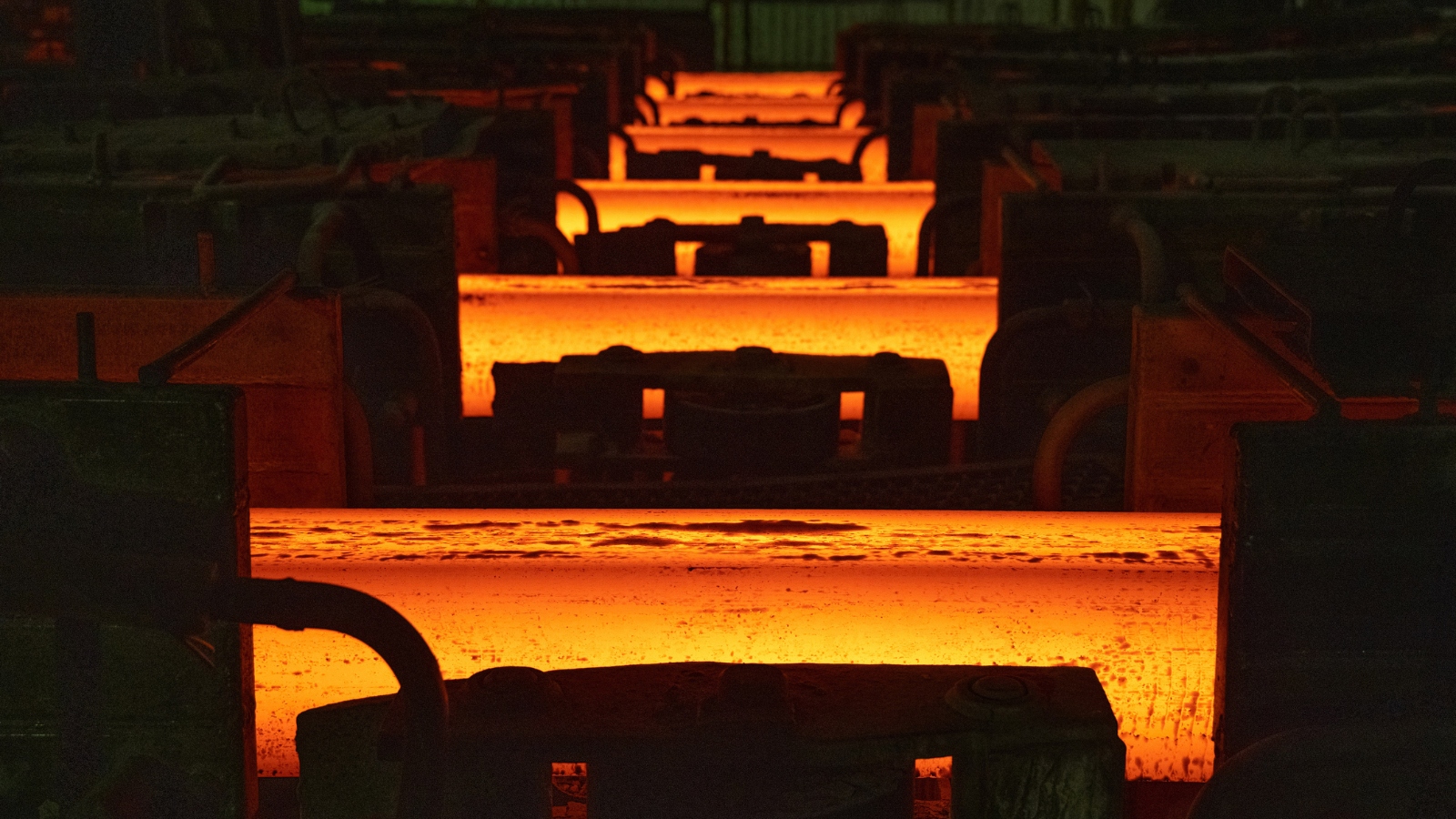[ad_1]
In early March, a small group of Democratic senators from the Rust Belt despatched President Joe Biden an pressing letter. They started by extolling the advantages of two of the Biden administration’s largest achievements, the bipartisan infrastructure legislation and the Inflation Discount Act, calling them “historic investments in our nation’s infrastructure” that can ring in a brighter future for American manufacturing. However there was one thing, they cautioned, that threatened to hamper this progress: the Environmental Safety Company’s deliberate rules for built-in iron and metal mills, proposed final July and nearing a court-ordered deadline.
“We’re involved that the EPA’s proposed built-in metal guidelines will do what overseas rivals have so far been unable to do: deter and diminish continued American funding in enhancing our metal trade,” wrote the 5 senators, amongst them Joe Manchin of West Virginia and John Fetterman of Pennsylvania. They claimed the rules would value corporations billions, sufficient to power widespread layoffs, regardless of the EPA’s estimate of $7.1 million in prices for the 2 corporations, U.S. Metal and Cleveland-Cliffs, that personal all 10 of the nation’s metal mills.
Shortly after the senators despatched off the letter, the EPA unveiled its closing rule, the primary time the company has ever tried to chop emissions from leaks and tools malfunctions at metal mills. The EPA expects the brand new rules will minimize particle air pollution by 473 tons yearly. However the closing rule is weaker than the one it proposed in 2023. Whereas the company had initially deliberate to slash metal mills’ poisonous emissions by 79 tons per yr, a 15 p.c lower total, the ultimate model is anticipated to chop emissions by 64 tons every year. The EPA additionally dropped a proposed restrict on the thickness of the smoke emanating from mills’ doorways and roof vents.
Jim Pew, a senior legal professional at Earthjustice who has litigated a number of lawsuits in opposition to the company for its failure to curb metal mill air pollution, informed Grist that the rules may have “actual advantages” for the individuals dwelling within the shadows of the nation’s most polluting metal mills, however lamented the safeguards that have been eliminated.
“It’s a small step in the best path,” he stated, noting that the EPA had furnished the ultimate rule with a typical to manage a kind of incinerator utilized by some extremely polluting mills. “The metal corporations mounted an actual disinformation marketing campaign about the price of the rule that I feel put strain on EPA to take out some provisions that will have been useful.”

The brand new rule provides the nation’s metal corporations two years to replace their amenities with the requisite emission discount tools and office requirements. In an e-mail, an EPA spokesperson stated the company had “fastidiously thought-about the stakeholder suggestions and made data-driven modifications within the closing rule that present wanted flexibility, whereas additionally offering well being protections for surrounding communities.”
The senators’ letter represents a uncommon event of congressional involvement within the EPA’s rulemaking course of, a yearslong endeavor that requires in depth information assortment and engineering experience. The company’s air air pollution rules, whereas undergirded by science and riddled with industrial jargon, have main penalties for communities that host the nation’s industrial infrastructure, figuring out the portions of poisonous chemical substances that corporations can emit — and that residents can inhale.
Metal manufacturing is a extremely polluting enterprise involving heating coal above 2,000 levels Fahrenheit to provide a product often called coke, which is then mixed with iron ore in a blast furnace and melted down into liquid metal. The broiling warmth releases a slew of poisonous heavy metals similar to lead and arsenic, in addition to tremendous particulate matter that may accumulate within the lungs after extended publicity. Quite a few research have linked air pollution from metal mills to impaired coronary heart and lung operate.
Ninety p.c of the metal trade’s emissions originate from 4 mills that dot the rim of Lake Michigan close to the border between Illinois and Indiana. As soon as bustling hubs for manufacturing, cities like Gary, Indiana, sank into decline over the latter half of the twentieth century when manufacturing jobs have been shipped abroad. As we speak, the metal mills that emit black smoke into the air of the realm’s overwhelmingly low-income and Black communities are holdouts from this period, symbols of a affluent previous that politicians on either side of the aisle appear keen to guard.
The primary effort by members of Congress to persuade the EPA to alter its course got here final December. A bunch of eight senators, together with Democrat Amy Klobuchar of Minnesota in addition to Republicans Mike Braun and Todd Younger of Indiana, despatched a letter to the EPA’s administrator, Michael Regan, arguing that the company’s proposed rules would hurt nationwide safety by making the home metal trade — the “world’s cleanest main producer of metal” — uncompetitive.
“We assist lowering dangerous air air pollution,” they wrote. “We additionally assist guidelines which can be sturdy, practical,” and based mostly on the view that the federal authorities ought to “enhance public well being whereas defending good-paying jobs and supporting industries important to our nationwide and financial safety. These guidelines fail to fulfill these requirements.” The senators didn’t specify which provisions within the proposed rule would have these results. The letter in March from Manchin and the opposite Democrats introduced even stronger warnings. “If these guidelines are promulgated as proposed, Cleveland-Cliffs and U.S. Metal could also be left with no selection however to prematurely shutter mills, leading to job losses and irreparable hurt to their native communities,” the senators argued.

In its closing rule, the EPA estimated that the whole prices to the metal trade would whole $7.1 million, an quantity that will cowl the set up of air displays to measure chromium air pollution across the perimeter of amenities and the implementation of latest office practices to cut back leaks from beforehand unregulated emission sources. However in a press launch supporting the senators’ declare of prices working into the billions, Cleveland-Cliffs CEO Lourenco Goncalves argued that the rule would “put in danger good-paying, middle-class union jobs within the metal trade.” In 2023, U.S. Metal and Cleveland-Cliffs reported gross sales of $18 billion and $21 billion, respectively.
Pew, the Earthjustice legal professional, stated considerations that the brand new guidelines will wreak havoc throughout the trade are unfounded. “The price claims have been so surprising to us, as a result of EPA routinely overstates the price of its guidelines,” Pew stated, citing a research in 2020 from the Nationwide Affiliation of Clear Air Businesses. “They’re saying that not solely did EPA understate the price of these guidelines, however that it understated them by orders of magnitude.”
After being attentive to the senators’ efforts to intestine the metal mill rules, Bruce Buckheit, the previous director of the EPA’s air enforcement division, determined to ship Regan a letter on behalf of Earthjustice in February. He dissected the contents of the brand new rule, arguing that its impacts can be “simple” and meet the minimal air pollution reductions required by the federal Clear Air Act. “I’ve seen nothing within the rulemaking file for these proposals that helps the price claims within the senators’ letter,” he wrote. The entire capital expenditures, he concluded, can be minuscule in contrast with U.S. Metal’s and Cleveland-Cliffs’ revenues.
“I imagine it is very important push again in opposition to such overblown trade claims, lest that narrative drive public opinion and company coverage,” Buckheit wrote.
Editor’s word: Earthjustice is an advertiser with Grist. Advertisers don’t have any position in Grist’s editorial choices.
[ad_2]
Source link



